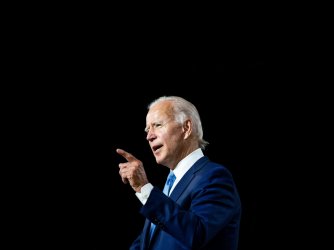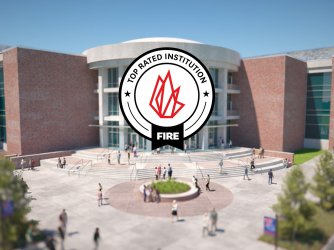Table of Contents
Did Boston’s Simmons University concoct scheme to oust controversial professor? It sure looks that way.

When David Kane taught at Harvard University back in 2020, students accused him of writing multiple subjectively offensive personal blog posts under the pseudonym David Dudley Field ’25. Among Dudley Field’s posts were claims most Black students at Williams College wouldn’t have been admitted if not for affirmative action, and that Williams would be wrong to punish students for political speech, even if that speech were in support of white nationalist groups like Identity Evropa.
Kane left Harvard in June 2021 and began teaching at Simmons this semester. Not long after, Simmons students discovered the controversy surrounding Kane at Harvard and demanded he be fired.
Of course, that would create academic freedom issues. So, in an apparent work-around, Simmons opened up a concurrent section of Kane’s introductory statistics course taught by a different professor, and allowed students to transfer out of Kane’s class without the penalty they would face under normal circumstances. Then, after a large number of students transferred out of Kane’s class, Simmons canceled the class due to low enrollment and announced that it would not renew Kane’s contract.
FIRE called on Simmons to immediately return Kane to the classroom.
Problem solved? Not on FIRE’s watch.
Simmons’ dressed up academic freedom problem is still an academic freedom problem. And Simmons clearly violated its academic freedom policies by taking adverse employment action against him because of his protected expression. As we wrote to Simmons today:
Given Simmons’ clear commitments to faculty free expression, it may not non-renew faculty members like Kane for expressing their views, regardless of the speech’s content or students’ reactions. Although the comments attributed to Kane offended some students, Simmons has enshrined in its policies the laudable commitment that “[a]cademic freedom is fundamental to the central values and purposes of universities, which must in turn protect freedom of inquiry and speech[.]” The university commits that “when speaking or writing outside the class as an individual, the teacher must be free from institutional censorship or discipline.” Based on this strong commitment, faculty would reasonably believe that they have expressive rights commensurate with those guaranteed by the First Amendment.
The subjective nature of a faculty member’s speech — or in this case, speech that some believe came from a certain professor — does not make it permissible for universities like Simmons to punish faculty. As we wrote:
The “bedrock principle underlying” freedom of expression is that speech may not be limited “simply because society finds the idea itself offensive or disagreeable[.]” It is this counter-majoritarian principle that protects “insulting, and even outrageous, speech in order to provide adequate breathing space” to public debate, recognizing that those with authority “cannot make principled distinctions” in determining what speech is sufficiently offensive to suppress.
FIRE called on Simmons to immediately return Kane to the classroom and to respect the expressive rights that it guarantees faculty. We’ll keep readers updated.
FIRE defends the rights of students and faculty members — no matter their views — at public and private universities and colleges in the United States. If you are a student or a faculty member facing investigation or punishment for your speech, submit your case to FIRE today. If you’re faculty member at a public college or university, call the Faculty Legal Defense Fund 24-hour hotline at 254-500-FLDF (3533).
Recent Articles
FIRE’s award-winning Newsdesk covers the free speech news you need to stay informed.

TikTok legislation sets grave precedent for free speech

FIRE joins animal advocates, free speech groups urging Ninth Circuit to affirm ruling that allows undercover audio recording

Louisiana Tech earns top rating for free speech


